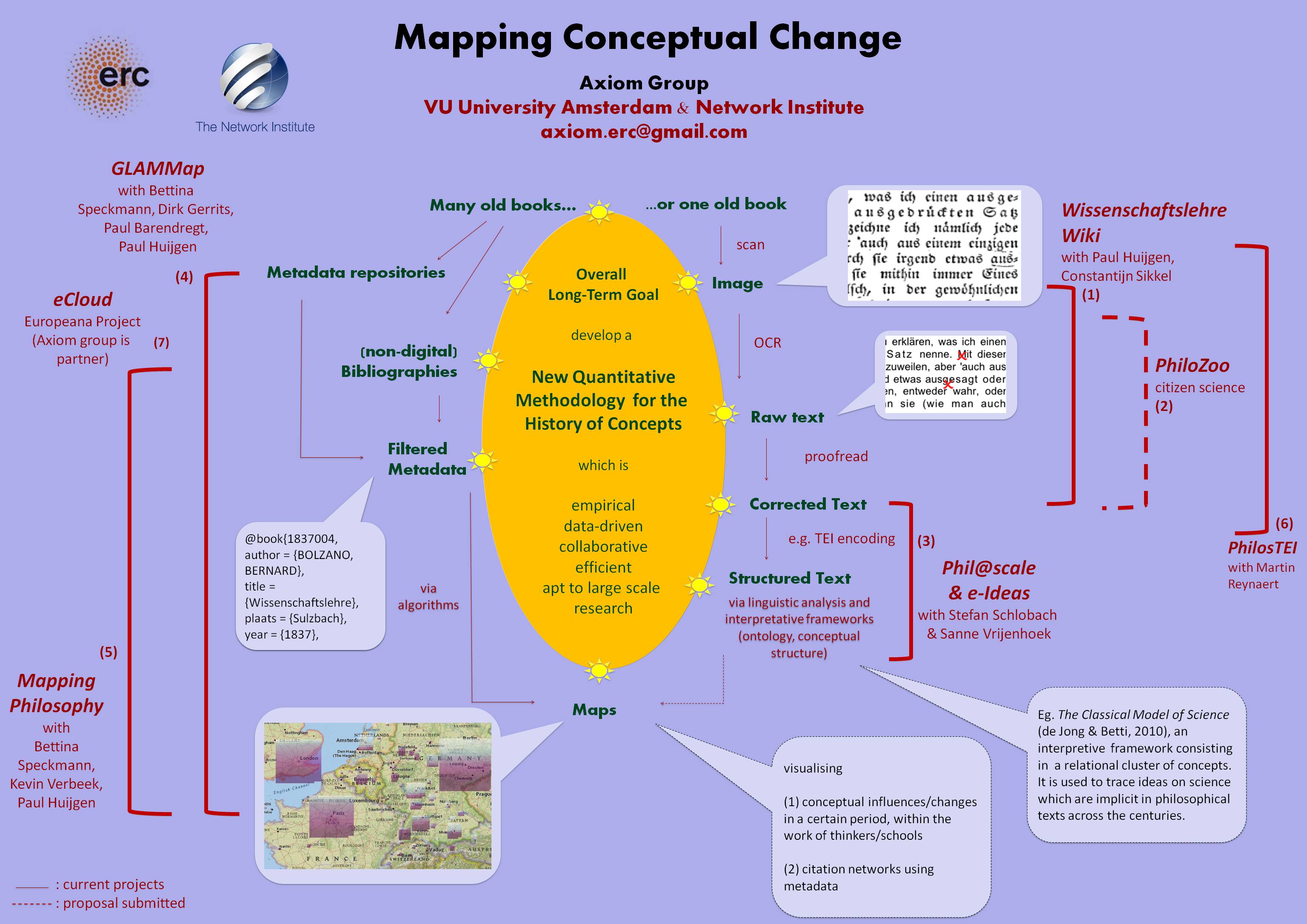The Axiom group's research traces how concepts change through time. We specialize on concepts that are relevant to sciences such as logic, mathematics, and biology, concepts such as truth, (logical) consequence, and life in 18th - 20th century. We have come to realise that this research can profit immensely if philosophers would team up with computer scientists and applied computational methods to analyze texts. From 2009 onward, we started applying tools developed in the broad movement of ‘Digital Humanities’ and develop new tools to fit our specific needs. Computational methods allow more efficient, objective, democratic and open research on conceptual change, because they enable research which is empirical, data-driven, apt to large scale, effectively communicable and collaborative. Our ultimate goal is to develop a new methodology for the history of ideas which has all the characteristics just mentioned. We want to find the best way to visualize how concepts travel by applying computer tools to lots of texts. The new methodology we envisage is not only very innovative in our own research field, it will also be of interest for anybody who wants to investigate text-based conceptual change across time and space. Our dream can be represented visually like this:  On top of the egg there are books, the daily bread of any philosopher. Computational methods can be applied in two ways; on data from the book (the right-side of the egg), or on data about the book (the left-side of the egg). (And fruitful combinations are foreseeable.) Starting with data from the book, one can go from a PDF (an image of a page), to OCR, to a structured text. A computational tool that can ‘read’ the conceptual scheme (ontology) from a structured text is something we are developing right now. Starting with data about the books, one can go from metadata (such as ‘author’ ‘year of publication’) to maps on which time and location of publication are depicted. Click on the links below to find out more about each project. Wissenschaftslehre Wiki Axiom team together with Paul Huijgen and Constantijn Sikkel (VU University Amsterdam) PhiloZoo Axiom team Phil@Scale Axiom team together with Stefan Schlobach, Sanne Vrijenhoek, and the Knowledge Representation and Reasoning group (VU University Amsterdam) GLAMMap Axiom team together with Bettina Speckmann and Dirk Gerrits (TU Eindhoven) MappingPhilosophy Axiom team together with Bettina Speckmann, Dirk Gerrits, and Kevin Verbeek (TU Eindhoven) PhilosTEI Axiom team together with Martin Reynaert (Tilburg University), Mark Hedges (King’s College London), Bettina Speckmann (TU Eindhoven), Stefan Schlobach, Paul Huijgen, and Paul Barendreght (VU University) eCloud Axiom team is partner in this FP7 Europeana Project. |